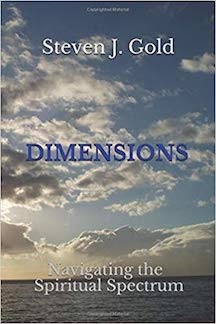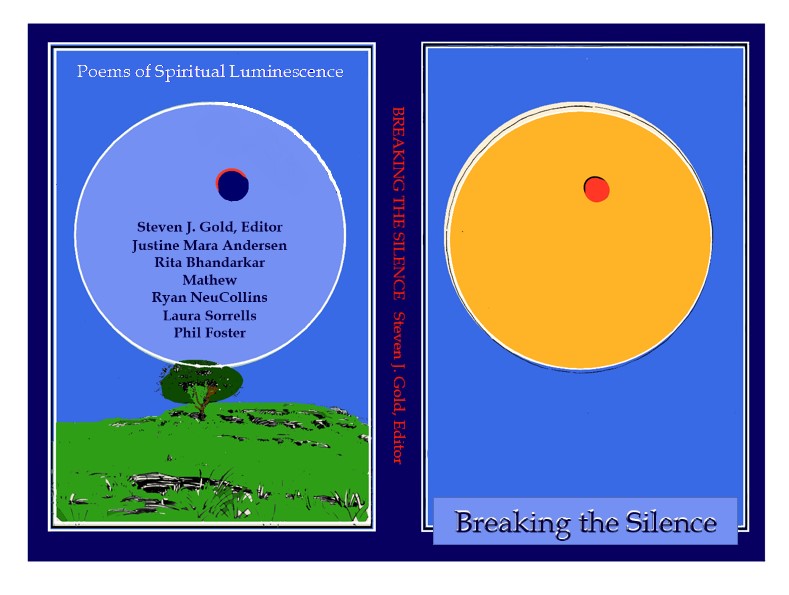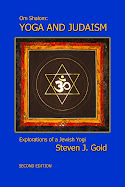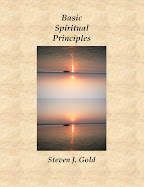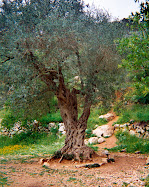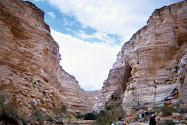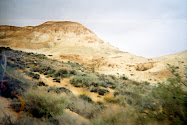Quote of the Week 419 - Listend/Hearing for Non-material Sustenance
Quote of the Week 419 - Listening/Hearing for Non-material Sustenance
Every one who is thirsty, come and drink. He who has no money, come, buy and eat. Come, buy wine and milk without money and without price. Why do you spend your money for that which is not bread and your labor for that which does not satisfy? Listen carefully to Me, and eat what is good. Let your soul delight in abundance. Incline your ear, and come to Me. Hear, that your soul will live…
--Isaiah 55:1-3, The Living Torah translation by Rabbi Aryeh Kaplan
Meditation (Click your selection, scroll down to view it)
- Audio Link: Interview - You Cannot Avoid Mystery; Eastern Meditation
- Audio Link: A Foundation for a Fruitful Meditation Practice: Science of Breath/Pranayama/Relaxation - Theory and Practice
- Audio Link: (Scroll to 11/04/18 entry) The Breath and Life Force; Guided Meditation - I Am an Empty Shell, Therefore I Am Full, etc.
- Meditation Basics - Expanded Version
- Meditation Basics - Condensed Version
- Mantra Meditation Basics
- Nada Meditation - Anahata/The Unstruck Sound
- Jewish Yoga Meditation
- Hebrew Mantras
- Hebrew Mantras, Part Two
- Hebrew Mantras, Part Three
- Hebrew Mantras - Adonai Hineni
- Healing Meditation: Ruach El Shaddai/Breath of Balance
- Meditating, Eating and Sleeping
- Shortcuts to Spiritual Development?
- Audio Link: Guided Meditation - I Am and Empty Shell, Therefore I Am Full; A Meditation on Emptiness and Dark Luminescence Based on the Opening Lines of Genesis
- Guided Meditation: The Stage
- Guided Meditation: I Am an Empty Shell, Therefore I Am Full; A Meditation on Emptiness and Dark Luminescence Based on the Opening Lines of Genesis
- Guided Meditation: The Rod, The Staff, and The Star
- Torah-Veda Meditation Class Site
- Interspiritual Contemplative Group
CURRENT TEACHING SESSIONS
Thursday, February 26, 2009
Quote of the Week 82 - Synesthesia at Sinai
--Exodus 20:15-18 [This is immediately after God spoke the words of the Ten Commandments directly to the assembled multitude at the foot of Mt. Sinai]; Everett Fox Translation
Tuesday, February 24, 2009
For Atheists/Agnostics
[The following is something I wrote in response to an email I received from someone expressing their lack of connection with anything spiritual or related to God. I felt it worth sharing with a wider audience for anyone else of like mind.]
Concerning your lack of connection with anything you deem spiritual or related to God, one thing that comes to mind is "conscience", the source within us that helps us establish some sense of right and wrong, morality, ethics. Do you think you have a "conscience"? If so, what is the source of your conscience? I would say that Spirit, God and Conscience are all closely interconnected. Also closely connected would be the source of any sense you may have of humanity, brotherhood/sisterhood, etc.
Another thing that comes to mind is a sense of aesthetics/beauty. If you are inspired by certain works of art or music, the question is, what is it within you that stirs such feelings? I would again say that Spirit, God and a sense of what is beautiful, poetic, aesthetically moving are all closely interconnected.
And last, but not least, what is the difference between two bodies lying on the floor, side by side, one that of someone, human or animal, who has just died, and the other that of a similar being that is still alive. Their physical components are the same, but the living being is animated by something that no longer exists in the dead being. I would again say that Spirit, God and the life force that distinguishes between what is alive and dead are all closely interconnected.
Also, if you don't believe in Spirit or God or things like that, can you define what it is that you don't believe in? Maybe what you don't believe in is not really Spirit or God, but erroneous or incomplete common conceptions. Maybe there is a different definition of these terms more in line with the above that you can believe in.
One more thing for your contemplation about God and spirituality: What is infinity? As far as numbers go, all kinds of infinities are all around us. If you start with zero on the number line and count positive integers, it goes to infinity, if you count negative integers, it goes to infinity. There are even all kinds of infinities between each integer. 1.111111...goes on forever, as does 1.2222..., etc. If you divide one by three, you get 1.33333... forever. Pi is a non-repeating computation that goes on forever. I think that God and Spirit are closely related to Infinity.
Sunday, February 22, 2009
Quote of the Week 81 - Haftorah Yisro
--from Haftorah Yisro, Isaiah 6:9,10
Wednesday, February 18, 2009
Bibliography/Book Review; Hesse, Herman, Siddartha, et al.
Hesse, Herman, Siddartha, et al.
I first read Siddartha halfway through my senior year in high school in 1969. Hesse was popular among the intellectual, introspective, inquiring, question-and-challenge-authority, hippie-leaning crowd of the day, and so I jumped in. This is the first book I ever read related to Eastern spirituality, and as such, it served as my entry portal to this other world. The beautiful, simple poetic prose of this little book, inspired by legends of the life of the young Buddha, had a deep impact on me. I was “high on life” for about a month after reading this book. In ensuing years, I read several of Hesse’s other books, including Steppenwolf (had to read the book that the rock band lifted for its name! – quite an extraordinary, mind-blowing book that got me to appreciate Mozart in ways that I never would have otherwise), Damian, Journey to the East, Magister Ludi/The Glass Bead Game and maybe some others.
Oddly enough, it was a course on the great religions of the world that I was required to take at my first college, a conservative establishment bastion, Lafayette, in Easton, PA, the following year, that firmly pushed me through the entry portal revealed by Hesse. I couldn’t care less about the Western religions we studied, but I was quite enthralled with all of the Eastern religions, particularly Hinduism, Buddhism, and Taoism. This study inspired me to reconsider my earlier atheistic/agnostic rejection of God based upon what I was taught in Hebrew school, in light of other alternative perspectives on spirituality and God. The floodgate was soon about to be opened wide upon my transfer from Lafayette College to the ultra-liberal Antioch College in Yellow Springs, OH.
Thursday, February 12, 2009
Quote of the Week 80 - E. J. Gold
How can he remain indifferent to ideas which are new to him and which are not available in the ordinary course of events?
How is it possible that a man never asks himself what his real purpose for existence might be?
Why is mechanical man unable to impartially view his situation and change his life accordingly?
How can a man who has realized that he can no longer be content with the ordinary satisfactions of mechanical-biological life fail to question what he is and what he might accomplish if he were free?
And finally, how can a man break the bonds of ordinary biological life and leave behind him once and for all the things of his past which supported him since he was a child? How can he bring himself to cross the wild river which stands between his ordinary but comfortably predictable life and the uncertain life of evolutionary man?
This last question, at least, has an answer, or at least a partial answer. He cannot break his bonds until he can see the other shore. Until he raises his eyes from the sweaty soil of the earth, he cannot see, and cannot comprehend. But if he is able to glance even once across the river, he will never rest until his goal is reached.
--from Secret Talks on Voluntary Evolution, by E. J. Gold
Sunday, February 8, 2009
Existence
First Principles:
I am. I want to be. I want to continue being. To my limited conscious knowledge, I was born not of my own choosing. For many years, I did not question the fact or meaning of my birth. In this sense, I was a "reactive" and dependent being. I was dependent on outside sources and stimuli to nurture me, and I reacted to them accordingly to satisfy my will and drive to live. If I was left alone with only my own resources at that time, I would have died; even though the fact of my very being was saying, "I am. I want to be. I want to continue being."
And as I grew and was nurtured, I continued to react to stimuli, pressures, and forces presented to me so that I could continue to be. I reacted to the ever-increasing varieties of stimuli presented to me accordingly; I avoided pain and discomfort as best I could and reacted in ways that would bring me pleasure and comfort. I did not question the authorities and sources of nurture that I was dependent on; I just reacted to all presented to me in accordance with my will to live.
During the process of my nurturing, there somehow slowly evolved a self-consciousness and self-awareness that eventually led to the acute realization that it was within the realm of my individual resources to cease to be. Having the knowledge of this power led to the realization that I no longer had to be if I did not want to be. And further self-consciousness, following from this new knowledge made me question the very fact of my being, which was something I had never done before.
Now, questioning my very being also had the effect of questioning all the things that my being seemed to be contingent on - all the stimuli, pressures, and forces that I had been reacting to in accordance with my will to live.
So, since being born, I have gradually been transformed from an entity unconsciously willing to live and unquestioningly reacting to the environment in order to fulfill that will to live, to an entity that consciously questions the will to live and that has at its disposal the power to negate its life if it so desires. One profound result of this transformation is the conscious realization that I need not immediately react to many of the stimuli, forces, and pressures that I unconsciously thought I always had to be reacting to in order to live. There is an important difference between obligation to live and desire to live: the unconscious reactive being saw no choice but to live, which often made living an obligatory task; the conscious being is not obliged to life or any of its tasks, for it can accept or reject life, with its contingencies, as it so desires. I am still a dependent being and I still am a reactive being, but the added dimension of this acute consciousness is tantamount to the birth of a new self. The life of the new self is its own; I can choose to live or die as I so please. With either choice, I am aware that I face factors that as of yet are unknown to me and that are outside of my control and/or understanding.
* * *
The babbling mind questioning itself:
I am, therefore I think and I question. Or perhaps, I think, therefore I am and I question.
But who are you?
I am me.
But why do you exist?
I exist because I want to.
Why do you want to?
Because.
Because why?
Because...why not? I need no other explanation or justification.
But with all the suffering, inconsistencies, contradictions, inhumanity, etc...in the world, and all the pressures on your life and the often absurdity and doubtfulness of it all, why go on living? Why not just end it all now?
I've thought about all of that over and over again, and every time I ponder it, I decide to live. It's not all that bad, and besides, I'll die soon enough anyway. I think there's definitely something worth living for; I can feel it in my bones. I have my steadfast will to live, to see myself through life, and to learn what I can along the way. That's all there is to it. All else will follow. Right now, I am, I want to be, and I want to continue to be.
MMM...
* * *
At every moment, the decision is automatically made and accepted that I want to live. But this automatic subconscious decision-making is at the call of closer conscious scrutiny and re-evaluation whenever it is desired. And since my continued being is a function of my on-going desire and choice to be, my life should at least always be to my contentment.
There is a force within me that is not within my conscious control or comprehension. I know it exists because I have in some way perceived, experienced it and have felt its effects upon me. I am conscious of its existence and accept its existence as a condition of my life. Yet its existence has the effect of affecting my decision to live and how to live my life. It is a determining factor of my behavior in that it judges my actions as either satisfactory or unsatisfactory. When I act in accordance and harmony with it, it leads to my affirming my life and way of living; when I act in opposition and discord to it, it makes me question and doubt my reasons for living. In this sense, it is one and the same with my will to live and the essence of my life. To consciously deny it would necessitate my self-imposed death. To lose conscious touch with it would be to lose self-consciousness and meaning to my life. To merge consciousness with it would be to become my life and my reason for living.
Unless I wish to speak for it, my existence speaks for itself.
* * *
I.
I am.
I think.
I question.
I have the power to be.
I have the power to cease being.
I constantly question my reason for being.
The constant questioning of my life necessitates the constant affirming of my life, acceptance of the conditions necessary to live and exercising the power to meet those conditions; or the negating of my life, acceptance of the conditions necessary to die, and exercising of the power to meet those conditions.
I am obliged to choose between life and death. All that follows from this decision is a manifestation of that choice, of my will.
Further Principles:
I don't want to live.
And I don't want to die.
I don't want anything.
I am not obliged to choose to live or die.
I don't choose to live, and I don't choose to die.
If I live, it is because I happen to live.
If I die, it is because I happen to die.
I'm just watching it all happen.
* * *
I find that I have a drive within me that is the motivating force of my life.
I also find that I have a body.
I don't necessarily want my body.
But I don't want to be rid of my body, either.
I just happen to find myself in a body, so here I am.
Something tells me I am not my body.
I can't be my body, and at the same time, watch my body function.
I don't even want my body to function.
I don't want anything.
My body is functioning because the motivating force of my life makes it function.
I'm pretty sure that if my body does not get killed by some outside force, that someday it will wear itself out and cease to function. I'm not 100% positive of this, but it seems to be a general rule that bodies eventually cease to function, and although mine could be an exception, I doubt it. And even if or when my body does cease to function, that doesn't mean it will cease to exist. But maybe it will cease to exist too. I'll just have to wait and see.
Now, the motivating force of my life is not my body, and perhaps it will continue to exist and function after my body wears itself out and ceases to function.
I don't know if the motivating force of my life will wear itself out as my body probably will. It may be possible for my body to cease functioning before it wears itself out and without outside forces killing it; in which case, the cessation of the functioning of my body would be due to the cessation of the functioning of the motivating force of my life. And just because the motivating force of my life may cease to function, that doesn't mean it ceases to exist. But maybe it'll cease to exist, too.
Now even if the motivating force of my life does cease to function and exist, that doesn't mean that I will cease to function. I never wanted to have a motivating force anyway. Not that I didn't want it. I don't want anything. I'm just watching it all happen.
So who am I?
I don't know.
Maybe I'm eternal.
Or maybe I'll cease to function someday or wear myself out. But that doesn't mean I'll cease existing. But maybe I'll cease to exist, too.
Who knows?
I'll just have to wait and see.
Thursday, February 5, 2009
Quote of the Week 79 - Ramakrishna
In that state a man no longer finds the existence of his ego. And who is there left to seek it? Who can describe how he feels in that state – in his own Pure Consciousness – about the real nature of Brahman? [the Oneness underlying all of existence]. Once a salt doll went to measure the depth of the ocean. No sooner was it in the water than it melted. Now who was to tell the depth?
There is a sign of Perfect Knowledge. Man becomes silent when It is attained. Then the “I” which may be likened to the salt doll, melts in the Ocean of Existence-Knowledge-Bliss Absolute and becomes one with It. Not the slightest trace of distinction is left.”
--from The Gospel of Sri Ramakrishna, by M
Sunday, February 1, 2009
Bibliography/Book Review; Baum, L. Frank, The Wizard of Oz
Baum, L. Frank, The Wizard of Oz.
This is probably the first book about spirituality that I ever read, although at the time that I read it as a child, I was not fully aware of its spiritual profundity. That insight only came much later, as an adult. It is interesting to note that Baum became a Theosophist and sent two of his children to an Ethical Culture Society school. The Ethical Culture Society is quite interesting, and was founded by Felix Adler, the son of a prominent New York City rabbi, as an attempt to modernize and universalize religion and spirituality (Albert Einstein was a supporter). Below are observations I have previously written about this book and its message:
There has been a popularization and emphasis in recent years among some spiritual teachers of the concept that realization is achieved by expanding the present moment, the Now. They urge us to let go of neurotically dwelling on the past and anxiously anticipating the future, to the detriment of hardly being aware of the present, which is all that really ever exists. Expanding a sense of the present, of the Now, will provide a refreshing and invigorating perspective. Such a realization does not require a long and arduous search and effort or assistance from others. We all have the self-contained ability to arrive upon this realization right now.
This is really not a new message, as it has existed in various forms in spiritual teachings for a long time. It is no better portrayed than in the modern American tale of The Wizard of Oz. A traumatic event spurs Dorothy to embark upon a search to find her home, which she thinks she has lost. During her search, her consciousness is greatly expanded and opened to realms beyond her wildest imagination. It takes an encounter with a humbug wizard to lead her to the final realization that the ability to find home was always in her possession all along. It didn’t require a great search and lengthy effort to arrive upon an elusive goal attainable only in the vague and uncertain future of sometime later. It was available right now! The humbug also assists her traveling companions in coming to the realization that they all already possessed the qualities they were searching for elsewhere, so maybe he wasn’t such a humbug after all! This is a portrayal of what one teacher has coined “The Paradox of Instruction” – all that a spiritual teacher can really do is take something out of a student’s back pocket, buff it up, and give it back as a gift. The honest spiritual teachers admit to this sleight of hand; the less than honest ones lead the students to think the gift has come from somewhere else, and that they are indebted to the teacher for what has been bestowed upon them from out of their own pockets! But perhaps Dorothy’s and her companions’ searches and adventures leading to their revelations were somehow beneficial, and maybe even necessary. Perhaps without those preliminaries, they wouldn’t have been able to realize the value of the gifts bestowed upon them by the wizard.

